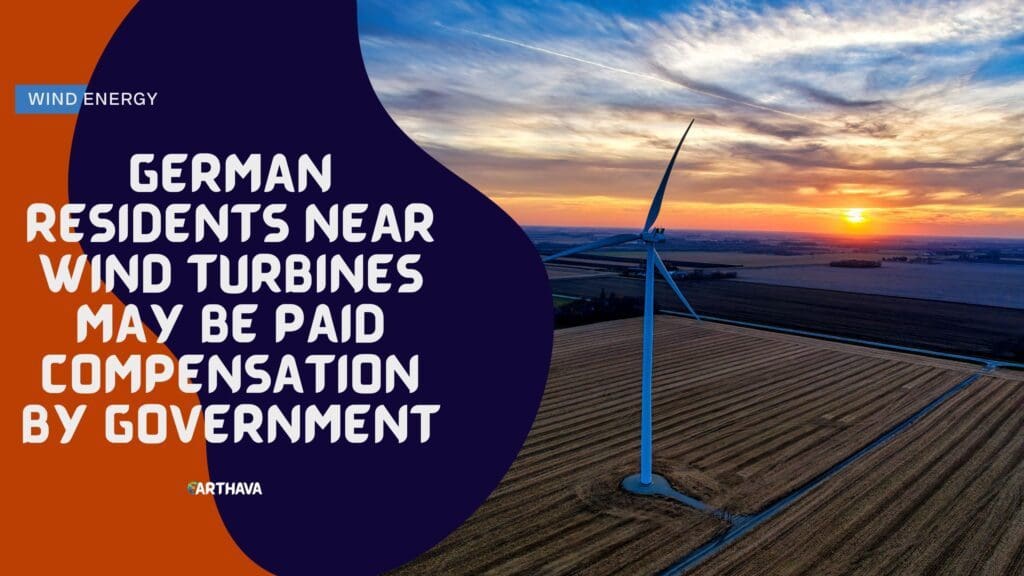Imagine receiving money for implementing clean energy in your home — or even living near sources of it. That concept is soon to become a reality for many German residents. A new government proposal may declare that German communities and businesses can receive payment for living next to wind turbines.

This decision marks a significant move in a time of climate change and renewable energy adoption. Similar laws in the U.S. and other countries have given tax incentives for installing solar PV, turbines, and other technologies on your property. However, there aren’t many that provide money for merely moving next to a renewable source.
Germany upholds a goal of subsisting on 65% clean energy by 2030, according to the Fraunhofer Institute for Solar Energy Systems. This law is one of many steps to realizing that goal.
The Logistics of Compensation
Germany’s Social Democrat Party is the major force behind the idea. They intend to reward those who adopt clean energy in hopes that their efforts will inspire others to make the switch. The planet’s health relies on countries, states, and cities moving toward natural resources and renouncing coal-based power. Environmentalists and law experts are facilitating the campaign in any way they can.
The payments would go to wind-based communities and local authorities, although the government is also open to sending money directly to homeowners. Any money they send to local officials must benefit the citizens directly.
The country’s history with wind turbines shows a surprising amount of pushback. Many German residents have complained about visual pollution and noise, as well as the dangers to winged animals.
Most turbines are of the Horizontal Axis variety — wind blows on both sides of the blades as opposed to one. This feature is likely a cause of the extra noise people often report, though others argue that wind turbines make no sound.
What This Means for Renewables
Encouraging people to install and live near renewable energy sources will encourage more to adopt the practices. Government agencies and businesses have tried many ways to involve people in clean electricity, and money is often an effective way to do so. Numerous European countries have employed similar measures for other types of renewable energies, such as solar and geothermal heating.
Swiss employs feed-in tariffs for residential installation of solar PV and geothermal units. They recently raised their compensation rate by 6.5 cents for every kWh of geothermal energy generated. Lithuania also compensates its renewable energy users — mostly industrial and small businesses — through a 12-year feed-in-tariff schedule.
Renewable technologies are often expensive, which gives some people pause when they try to implement them. However, lowering the installation costs — in addition to providing monetary incentives — is a successful motivator. If you’re considering clean electricity, always look for applicable compensation programs to make the most of your investment.
The Future of Wind Energy for Germany
This development in renewable compensation is new, but it won’t be the first time Germany has experimented with monetary incentives. The government of Mecklenburg-West Pomerania has offered company shares to people living near wind turbines, while eastern Brandenburg supplies around $11,000 to anyone within 1.86 miles of a wind farm.
Wind expansion has slowed down in recent years because of regulations on where companies can build turbines. Governmental issues affected over 11,000 gigawatts of wind power in 2019, which put a significant dent in energy efficiency. Groups like the Social Democrat Party are creating compensation programs and pushing back on these laws to maintain the spread of renewables.
With many citizens protesting wind turbines and governing powers imposing regulations, it’s hard to say how the future of wind energy will turn out. However, it’s undeniably one of Germany’s biggest power sources — it’s unlikely for it to disappear. Improved technologies and blade designs can make turbines easier to live around, and the money will only encourage more people to take the chance.
Shifting Toward New Incentives for Wind Energy
The Christian Democrats — another segment of Germany’s government — have yet to weigh in on the decision, but plans are underway. The Social Democrat Party hopes to remove current building restrictions on wind turbines that limit how closely these structures can exist near residential areas.
Increasing incentives for wind-powered electricity could draw more attention to other renewables, spreading a significant trend for better energy practices. With pressing climate concerns lingering, the movement to clean electricity generation couldn’t come at a better time.


